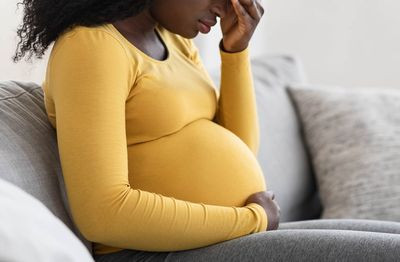
THE natural theory of law holds that law must be just and morally sound, a principle captured in the maxim lex injusta non est lex, an unjust law is no law at all.
Yet history has shown that unjust and immoral laws do exist. This reality compels citizens and their lawyers to challenge legislation that entrenches injustice, if society is to be just and moral.
One such law under scrutiny is the Termination of Pregnancy Act (Chapter 15:10), which regulates abortion in Zimbabwe. The Act sets out the grounds under which abortion may be lawfully performed, especially in cases of “unlawful intercourse”.
According to the Act, a medical practitioner may perform an abortion if the pregnancy endangers the mother’s health or life, if there is a serious risk of severe disability in the child, or if the pregnancy results from “unlawful intercourse”.
This term is narrowly defined as rape or incest. Crucially, marital rape is excluded, a glaring omission that formed the basis of a class action brought by Women in Law in Southern Africa (Wilsa) and others against the minister of Health.
On behalf of Wilsa, lawyer Tendai Biti successfully argued that the Act violates constitutional protections by failing to recognise pregnancies involving minors as unlawful. Under current law, a girl between 12 and 16 who becomes pregnant after so-called “consensual sex” cannot access abortion and must carry the pregnancy to term.
The contradiction is stark: while the Criminal Law Act criminalises sex with a minor, it does not categorise it as rape for purposes of abortion access.
Biti rightly asked, if the law already deems sex with a minor unlawful, why deny minors the right to terminate pregnancies that result from it?
- Youths take on MPs over sexual health
- Understanding God's voice
- 80 000 Zim women abort each year
- Britney Spears' memoir is a compelling and devastating
Keep Reading
Similarly, why should a wife impregnated through marital rape be denied that same right?
The courts agreed. They held that once the Constitutional Court raised the age of consent to 18 in the Diana Eunice Kamwenda case, all sexual intercourse with minors became unlawful. It follows that such cases must fall under the definition of “unlawful intercourse” in the Termination of Pregnancy Act.
For many, abortion remains a deeply moral issue. Opponents argue that permitting abortion erodes social values, reflected in its criminalisation under sections 59 and 60 of the Criminal Law (Codification and Reform) Act, which prescribe fines or up to five years in prison for abortions outside the Act’s provisions.
Zimbabwe’s diverse cultural and religious landscape also fuels resistance, but advocates counter that women’s health and rights must take precedence, aligning with the global principle of “her body, her right”.
Restrictive laws drive many women into unsafe, clandestine abortions, with preventable deaths as the tragic consequence.
The case of Mildred Mapingure illustrates the human cost. In 2006, Mapingure was raped during a robbery in Chegutu. Though she promptly reported the assault and sought emergency contraception, bureaucracy thwarted her. Police delays and hospital red tape meant she missed the 72-hour treatment window. She became pregnant and was forced to carry the child to term.
Mapingure later sued in Mapingure v Minister of Home Affairs & Others, where the court acknowledged her pain but denied her maintenance claim for the child, reasoning that she bore responsibility for not terminating the pregnancy after confirmation.
This ruling exposed the deep flaws in section 5(4) of the Termination of Pregnancy Act, which is vague and ill-equipped to protect victims of sexual violence.
Her ordeal highlights the urgent need for reform. Zimbabwe’s abortion laws not only fail to safeguard victims of rape and unlawful intercourse but actively compound their suffering through rigid rules and bureaucratic obstacles.
A humane legal framework must reflect the lived realities of women, ensuring their health, autonomy and dignity are respected.
Reforming the Termination of Pregnancy Act is not just a legal necessity, it is a moral obligation.
No woman should be forced to bear the lifelong consequences of a crime committed against her. Advocacy and reform remain the only path toward a more just and equitable society.
Mhlanga is a law student at the University of Zimbabwe.











